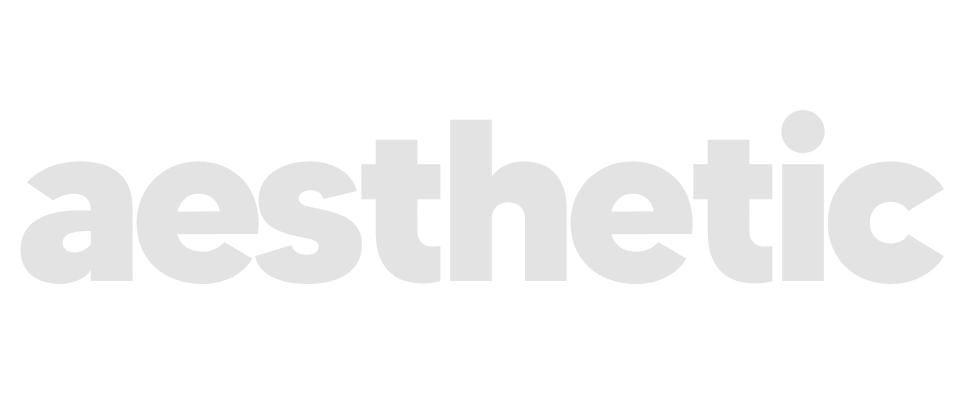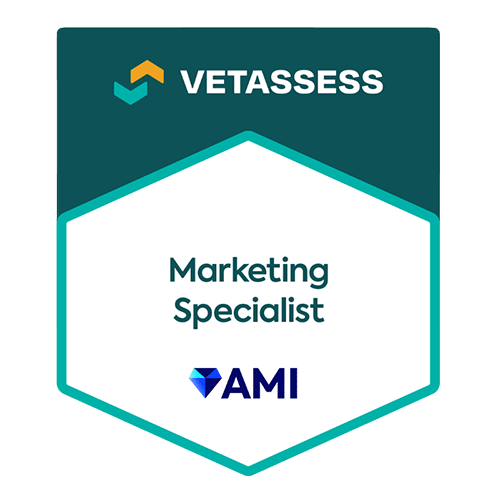Are you curious about AI marketing but worried about the costs? You’re not alone. Many small business owners think AI is too expensive or complicated for their needs. But here’s a secret: AI marketing can be affordable and straightforward. This article will guide you through simple, budget-friendly ways to integrate AI into your marketing strategy, helping you boost efficiency and connect with more customers without overspending.
Working with numerous small businesses that initially wondered about the affordability and effectiveness of AI marketing tools. However, many have seen remarkable customer engagement and sales improvements after adopting the right strategies. By leveraging AI, you can unlock new potential in your marketing efforts without breaking the bank. In this article, you’ll discover how to use AI to streamline your marketing processes, personalise customer interactions, and ultimately, maximise your budget. By the end, you’ll see that AI isn’t just a luxury for the few but a feasible tool for all, especially when used wisely.

Understanding AI Marketing
What exactly is AI marketing, and why should you, as a small business owner, care about it? At its core, AI marketing involves using artificial intelligence technology to automate decisions based on data collection, data analysis, and additional observations of audience or economic trends that may impact marketing efforts. This approach not only improves the efficiency of marketing campaigns but also enhances the accuracy and personalization of your customer interactions.
1. Automation and Efficiency
One of the most significant advantages of AI marketing is its ability to automate routine tasks. For example, AI can run email marketing campaigns, from managing your email lists to personalising and sending out emails at the optimal time without any human intervention. This means less time spent on manual tasks and more time available for strategic planning and creative tasks that require human insight.
2. Enhanced Personalisation
AI excels at personalising customer interactions. By analysing data on your customers’ behaviour and preferences, AI tools can help you tailor your marketing messages to meet the specific needs and desires of different segments of your audience. This kind of personalization is often key to increasing customer engagement and loyalty, as customers feel more valued when they receive content that is relevant to their interests.
3. Predictive Analytics
Another powerful aspect of AI is predictive analytics, which uses data, statistical algorithms, and machine learning techniques to identify the likelihood of future outcomes based on historical data. This can be a game-changer for your marketing strategy, allowing you to anticipate market trends, understand customer behaviour, and allocate resources more efficiently.
Why AI for Small Businesses?
For small businesses, the appeal of AI marketing lies in its ability to level the playing field. While larger companies might have more resources to dedicate to complex AI solutions, many AI tools are now accessible enough for small businesses to implement without the need for extensive tech expertise or significant investment. Tools like chatbots, recommendation engines, and customer segmentation software can provide a high return on investment, driving sales while managing costs.
Real-Life Application
Consider a small online bookstore that uses AI to recommend books based on a customer’s browsing history and past purchases. By employing a simple recommendation engine, the bookstore not only enhances its customer experience but also increases its sales through more personalised and targeted marketing.
Top Cost-Effective AI Tools for Marketing
Identifying the right tools is crucial for small businesses looking to harness the power of AI without exceeding their budget. Here’s a roundup of some of the best AI tools that offer significant advantages for small business marketing, without the hefty price tag.
1. Chatbots
One of the most accessible tools for small businesses is the AI-powered chatbot. Platforms like ManyChat or Chatfuel allow you to set up and customise chatbots for your website or social media channels. These bots can handle customer inquiries in real time, provide personalised shopping advice, and even support basic customer service tasks, freeing up your team to focus on more complex issues.
2. Email Automation Tools
AI-driven email marketing platforms like Mailchimp and Campaign Monitor use machine learning to optimise your email campaigns. They can automatically adjust send times, segment users based on behaviour, and personalise messages to increase open rates and click-through rates. These tools often come with scalable pricing plans, making them ideal for businesses that are growing.
3. Content Creation Tools
For content creation, tools like Writesonic and Jasper AI can help generate blog posts, social media content, and marketing copy. These AI-driven content creators can save you significant time and resources by generating draft content that you can refine and personalise. This not only speeds up content production but also helps maintain a consistent output without hiring additional staff.
4. Analytics and Insights Tools
Platforms like Google Analytics use AI to provide deeper insights into your website traffic and user behaviour. More advanced tools like Crayon or BuzzSumo can analyse market trends and track competitor activity, giving you a strategic edge by informing you about industry shifts and consumer preferences in real time.
5. Ad Optimisation Tools
AI can also revolutionise how small businesses manage advertising. Tools like AdEspresso or Smartly.io automate ad campaigns across multiple platforms like Facebook, Instagram, and Google Ads. They analyse performance and automatically adjust bids and creative content to maximise ROI. This means you spend less money experimenting and more money on what works.

Implementing AI Without Breaking the Bank
Implementing AI in your marketing strategy doesn’t have to be daunting or excessively costly. Here are step-by-step tips on how small businesses can integrate AI tools effectively, ensuring a smooth transition and maximum return on investment.
1. Start Small
Begin with a single, manageable AI tool that addresses a specific need, such as a chatbot for customer service or an email automation platform for marketing campaigns. This allows you to gauge the impact and learn how AI can best serve your business without overwhelming your team or your budget.
2. Leverage Free Trials and Lite Versions
Many AI tools offer free trials or lite versions with limited features that are often sufficient for small businesses. Use these opportunities to test different tools and see which ones fit your specific needs before committing to full versions. This approach helps minimise financial risk.
3. Focus on Integration
Choose AI tools that integrate easily with your existing systems. Compatibility reduces the need for extensive training or changes to your current workflows, which can be costly and time-consuming. Tools that work well with your existing infrastructure will help streamline processes and reduce setup time.
4. Train Your Team
Ensure that your team is comfortable and proficient with the new AI tools. Many vendors offer free training sessions, tutorials, or comprehensive documentation. Take advantage of these resources to boost your team’s confidence and efficiency, which is crucial for maximising the benefits of AI.
5. Monitor and Optimise
Once your AI tools are in place, continuously monitor their performance and impact. Use built-in analytics to track improvements in customer engagement, time savings, or increases in sales. Regularly adjusting your AI strategies based on these insights will help optimise efficiency and cost-effectiveness.
6. Scale Gradually
As your business grows and your comfort with AI increases, consider expanding your use of AI tools. Add more functionalities or integrate additional tools that can further enhance your marketing efforts and customer interactions. Gradual scaling allows for manageable growth without significant financial strain.
Measuring the ROI of AI Marketing Strategies
Determining the ROI of AI marketing initiatives is essential to ensure that your investments are paying off. Here’s how small businesses can track and analyze the effectiveness of their AI-driven marketing efforts:
1. Set Clear Objectives
Before launching any AI tool, define what success looks like for your business. Whether it’s increasing sales, improving customer satisfaction, or reducing operational costs, having clear goals will help you measure the direct impact of your AI strategies.
2. Track Key Performance Indicators (KPIs)
Identify and monitor KPIs that align with your objectives. For example, if your goal is to enhance customer engagement, track metrics like email open rates, click-through rates, or social media interactions. For sales objectives, look at conversion rates and average order values. These indicators will provide tangible data to assess the effectiveness of your AI tools.
3. Use Analytics Tools
Employ analytics tools to gather data and insights from your AI implementations. Tools such as Google Analytics for website traffic analysis or built-in analytics features in your AI platforms (like those in email marketing software) can provide comprehensive data on how AI is influencing customer behaviours and business outcomes.
4. Calculate Cost Savings
AI can also help reduce costs by automating tasks that previously required manual effort. Calculate the time saved by automation and convert this into cost savings by considering the hourly wages of the employees who would otherwise perform these tasks. This cost reduction is a critical component of your overall ROI.
5. Conduct Regular Reviews
Regularly review the performance of your AI tools against the set objectives and KPIs. This not only helps in measuring ROI but also identifies areas for improvement. Adjust your strategies as needed to optimise the performance of your AI solutions.
6. Gather Customer Feedback
Understanding customer satisfaction can provide insights into the qualitative impact of your AI strategies. Use surveys, feedback forms, or direct customer interactions to gauge how AI has influenced their experience and satisfaction levels.

Moving Forward
Adopting AI marketing strategies offers a world of possibilities for small businesses looking to enhance their marketing efforts without exceeding their budgets. From automating mundane tasks to delivering personalised customer experiences and providing actionable insights, AI tools can transform the way small businesses engage with their markets.
Key Takeaways:
Start Small and Scale: Begin with one or two AI tools that address specific marketing needs and scale as you become more comfortable and see tangible results.
Cost-Effectiveness: By choosing the right AI tools, small businesses can enjoy significant improvements in efficiency and customer engagement, often at a fraction of the cost of traditional marketing methods.
Measure Effectiveness: Regularly measuring the ROI of your AI strategies through clear KPIs and customer feedback is crucial. This not only proves the value of your investment but also guides future marketing decisions.
Continuous Learning and Adaptation: The field of AI is rapidly evolving. Keeping up with new tools and technologies can provide ongoing opportunities to refine your marketing strategies and stay competitive.
Final Thought:
For small business owners, the journey into AI marketing need not be intimidating or financially burdensome. With a thoughtful approach and a focus on strategic implementation, AI can be a cost-effective solution that drives real, measurable results. Embrace these technologies, and you will find that they not only save time and money but also open up new avenues for growth and customer connection.
Remember, the future of marketing is data-driven, and with AI, your small business has the power to leverage big data insights on a small business budget. Start exploring today and see how even modest AI applications can lead to significant improvements in your marketing efficiency and effectiveness. To deepen your understanding of effective marketing strategies, consider reading these insightful blogs: Effective Marketing Strategies for Freelance Digital Marketers Using the StoryBrand Framework to Shape Buyer Perceptions




